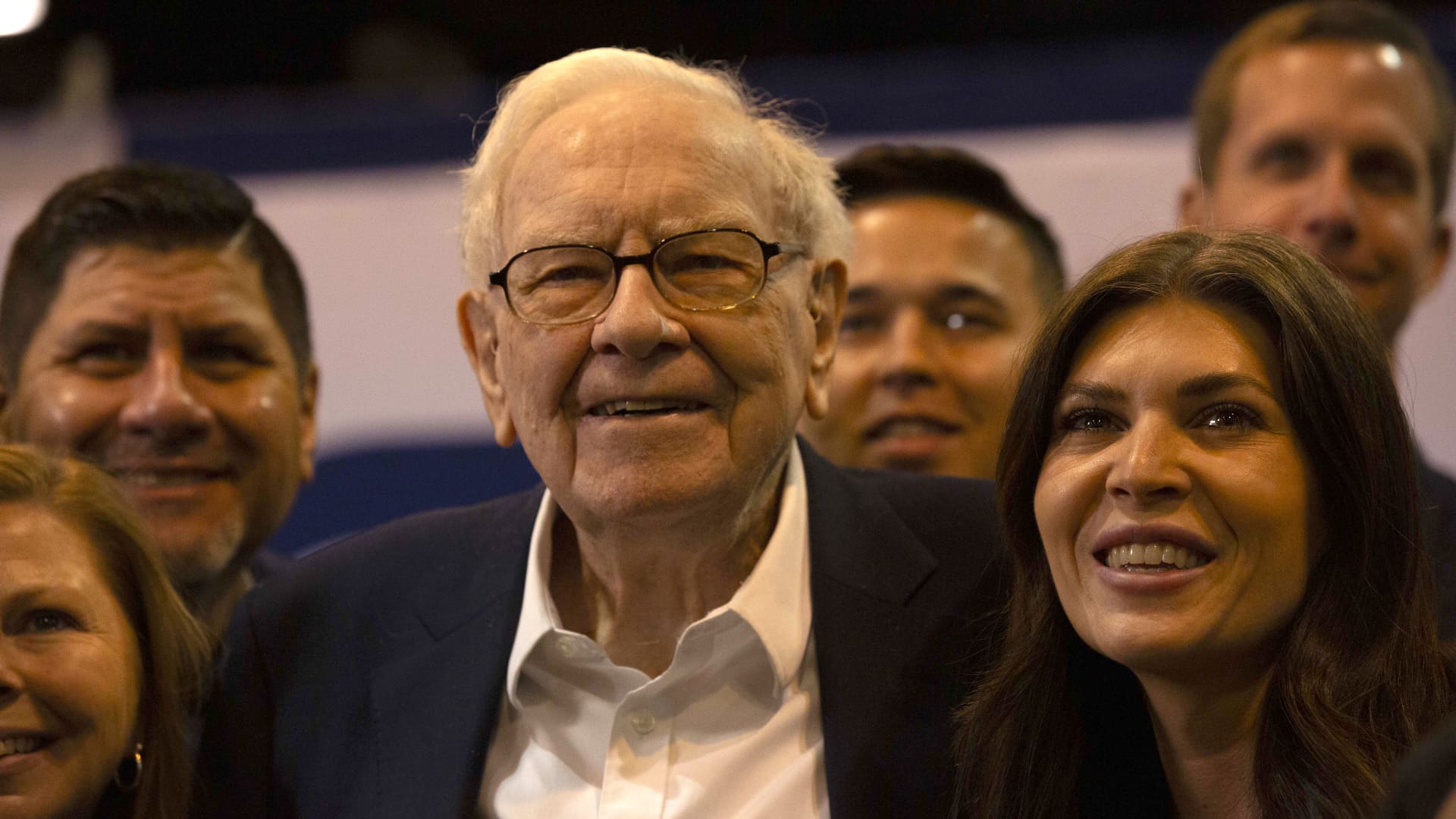Key Points
- Jamie Dimon told an event in Ireland on Thursday that Europe was “losing” on competitiveness and lacked the kind of global, successful corporations common in the U.S.
- The JPMorgan Chase boss also told an event in Ireland that there was “complacency in the markets” around U.S. tariffs and rates.
- Dimon said he saw a 40-50% chance that the Federal Reserve would need to raise interest rates to tackle inflation, against market pricing of around a 20% chance.
JPMorgan Chase boss Jamie Dimon did not pull his punches when he spoke at Ireland’s Department of Foreign Affairs. “You’re losing,” he said of European competitiveness with the U.S. and Asia, in comments reported by the Financial Times. “Europe has gone from 90% U.S. GDP to 65% over 10 or 15 years. That’s not good.” “We’ve got this huge, strong market and our companies are big and successful, have huge kinds of scale that are global. You have that, but less and less,” Dimon said on Thursday. That sentiment will not come as a shock to the region’s leaders and businesspeople, who have long stressed the need for the European Union to reduce trade barriers , complete its capital markets and banking unions , and streamline its regulation, tax and legal regimes to increase investment and boost growth in the region. Rising geopolitical tensions and fracturing trade ties with the U.S. and China have also highlighted Europe’s lack of sovereignty in spaces ranging from from energy and critical minerals to data centers , satellite communications and digital services . On addressing the issue of competitiveness, Dimon said: “Everything should be a single market.” “To finish it in the single market also means common banks, common disclosure laws, common exchange, common transparency laws, climate,” he said, according to the Irish Examiner. Investor attitudes toward Europe turned notably bullish in the first half of 2025, buoyed by expectations of a major fiscal boost in its biggest economy Germany, higher regional defense spending , lower interest rates and a period of relative political stability — particularly given the unpredictable policymaking and rhetoric coming from the White House. That drove a strong outperformance in public markets and also caught the attention of private market players seeking value opportunities. However, significant challenges lie ahead for the EU, including delivering on growth-supportive reforms and securing its relationship with its biggest bilateral trade and investment partner, the U.S. As of Friday morning, the status of an EU-U.S. tariff agreement remained in limbo . ‘Complacency in the markets’ Dimon also discussed market reaction to U.S. President Donald Trump’s latest tariff announcements this week, which have included 50% duties on Brazilian imports , a 50% rate on copper , and the threat of a 200% rate on pharmaceuticals. Traders have largely looked past the potential impact on inflation and growth, sending the S & P 500 and Nasdaq Composite to new closing records on Thursday — though sentiment appeared weaker early Friday . There is currently “complacency in the markets,” Dimon said Thursday, according to Irish Examiner, with investors now a “little desensitised” to tariff news. Inflation could re-emerge as a signficant problem for the U.S. and the chance of interest rates rising again is higher than most people think, Dimon also said. “The market is pricing a 20% chance [of a rate hike], I would price in a 40-50% chance. I would put that as a cause for concern,” he said. Last month, Dimon told a conference that the U.S. economy was vulnerable “to a downturn in the coming months,” with a “chance real numbers will deteriorate soon.”










